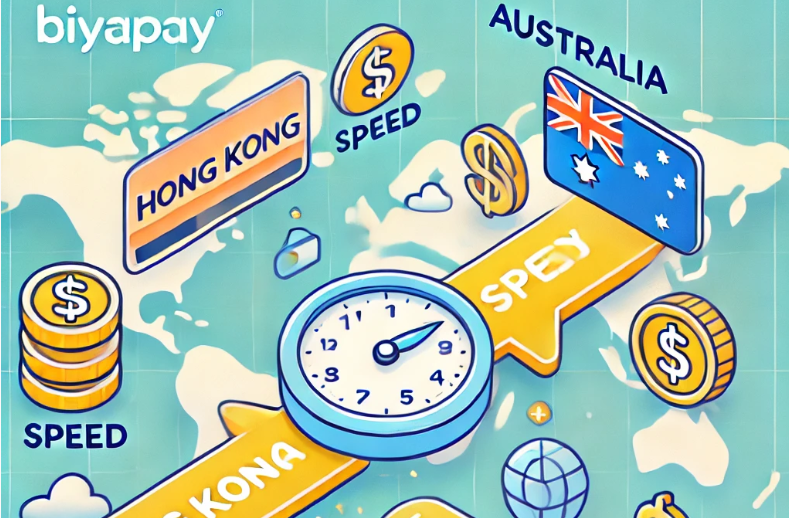- Remittance
- Exchange Rate
- Stock
- Events
- EasyCard
- More
- Download
# How Long Does It Take to Transfer Money from Hong Kong to Australia?
For individuals involved in financial transactions between Hong Kong and Australia, whether it’s for tuition payments, business transactions, or supporting family and friends, transferring funds promptly and securely from one country to another is crucial. Therefore, understanding the time required for remittances and the factors affecting this duration is particularly important.

Key Factors Affecting Remittance Time
When choosing a remittance method, it is essential to understand the key factors that affect the transfer time. These factors include the remittance method, working days versus non-working days, remittance amount, and the processing time of intermediary banks.
Remittance Method
Different remittance methods have significant differences in processing time. Traditional bank transfers usually take longer to process because they involve security checks and multiple intermediary banks. A conservative estimate is 3-5 business days, and it may take longer if large remittance reviews are involved.
Third-party remittance platforms, by using channels different from banks, have become more flexible and faster choices.
BiyaPay is an emerging professional remittance tool, known for its extremely low fees and fast processing times. It supports local transfers in most countries or regions worldwide, ensuring quick and secure remittances, with same-day transfers possible. BiyaPay supports more than 20 mainstream fiat currencies and over 200 mainstream digital currencies for online real-time exchange, with remittance fees as low as 1%, and it also supports large remittances.
Western Union is a good option for handling urgent remittances due to its wide coverage, although the fees are relatively high. Using Western Union, processing time can be completed within 1-3 business days, and with a vast number of offline outlets worldwide, it is convenient for recipients to withdraw cash directly.
Working Days Versus Non-Working Days
Remittance time is also influenced by working hours. Generally, banks process transfers faster on working days, while processing times may be extended on weekends and holidays.
Remittance Amount
Large remittances may require additional review and processing time, so small remittances are usually processed faster. Understanding the limits and processes of each remittance method can help better estimate the time required.
Intermediary Bank Processing Time
General remittances need to go through intermediary banks, and the processing time of these banks will also affect the final arrival time. Choosing cross-border services from the same bank can reduce the involvement of intermediary banks, thus speeding up the processing time.
Conclusion
By comprehensively considering processing time, fees, and exchange rates, you can choose the most suitable remittance method according to your needs. We hope the above content can help you make an informed decision and ensure that your funds can reach the Australian account safely and promptly.

























